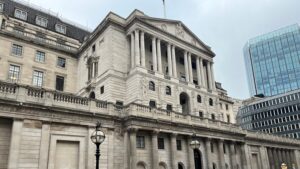Managed by Geir Lode, head of Hermes global equities, the fund will target a return of 3% above its benchmark, the MSCI All Country World Index, on a three-year rolling average basis by “investing in companies with favourable ESG characteristics”.
And, according to Lode, such a focus does not need to come at the expense of performance.
“Hermes research has shown that well-governed companies have outperformed their poorly-governed counterparts by an average of over 30 basis points per month since the beginning of 2009,” he says.
The fund will focus on company fundamentals, combined with an analysis on how well they are managing their ESG exposure.
It will consider “companies who are managing their ESG risks better than their peers, or companies who are demonstrating an increasing focus on ESG issues.” He added: “The global approach of the fund allows us to consider companies in emerging markets, an area where there is a greater dispersion of ESG characteristics, and where we believe that our approach can be particularly effective.”
The ethical investment space has grown significantly in the past few years; estimates by ESG research group,EIRIS, put approximately £12.2bn invested in Britain’s green and ethical retail funds as of 30 June 2013, up threefold over the past decade.
According to Lisa Stonestreet, programme director at UK Sustainable Investment and Finance Association, the market has become much more sophisticated in the last few years.
She told Portfolio Adviser: “it is no longer a one-size-fits-all approach. There is a recognition that not every definition of ethics is the same. Rather, it is about being as transparent as possible so that investors can see exactly what they are getting.”
It is also, she says, no longer just about excluding things that some people find objectionable, such as arms or alcohol.
“Over the last few years, funds and investors have increasingly been focused on the positives, looking at companies that are proactively working toward solving specific problems, rather than just screening out the negatives.”







